
Gao: A Glimpse into Ancient Mali
Gao, a city in Mali, stands as a testament to the rich history and vibrant culture of West Africa. Nestled along the banks of the Niger River, Gao was once the capital of the Songhai Empire, one of the largest and most powerful empires in African history. This city's historical significance is evident in its ancient monuments, including the Tomb of Askia, a UNESCO World Heritage Site. The tomb, built in 1495, is a pyramid-like structure that offers a fascinating insight into the architectural prowess of the Songhai Empire. As you wander through Gao, you'll be captivated by its bustling markets, where locals sell everything from fresh produce to traditional crafts. These markets are not just places to shop but also venues where you can experience the daily life and culture of the people. The city's vibrant atmosphere is complemented by its warm and welcoming residents, who are always eager to share their stories and traditions with visitors. Nature lovers will appreciate the scenic beauty of the Niger River, which provides an idyllic setting for boat rides and picnics. Birdwatchers will find the riverbanks teeming with a variety of bird species, making it a perfect spot for photography and relaxation. Gao's unique blend of history, culture, and natural beauty makes it a must-visit destination for any traveler looking to explore the heart of West Africa.
Local tips in Gao
- Visit the Tomb of Askia early in the morning to avoid the crowds and enjoy the serene atmosphere.
- Dress modestly and respectfully, as Gao is a conservative city with deep-rooted traditions.
- Learn a few basic phrases in French, the official language, to enhance your interactions with locals.
- Bring cash, as many local markets and vendors do not accept credit cards.
- Stay hydrated and carry bottled water, especially during the hot season.
Gao: A Glimpse into Ancient Mali
Gao, a city in Mali, stands as a testament to the rich history and vibrant culture of West Africa. Nestled along the banks of the Niger River, Gao was once the capital of the Songhai Empire, one of the largest and most powerful empires in African history. This city's historical significance is evident in its ancient monuments, including the Tomb of Askia, a UNESCO World Heritage Site. The tomb, built in 1495, is a pyramid-like structure that offers a fascinating insight into the architectural prowess of the Songhai Empire. As you wander through Gao, you'll be captivated by its bustling markets, where locals sell everything from fresh produce to traditional crafts. These markets are not just places to shop but also venues where you can experience the daily life and culture of the people. The city's vibrant atmosphere is complemented by its warm and welcoming residents, who are always eager to share their stories and traditions with visitors. Nature lovers will appreciate the scenic beauty of the Niger River, which provides an idyllic setting for boat rides and picnics. Birdwatchers will find the riverbanks teeming with a variety of bird species, making it a perfect spot for photography and relaxation. Gao's unique blend of history, culture, and natural beauty makes it a must-visit destination for any traveler looking to explore the heart of West Africa.
When is the best time to go to Gao?
Iconic landmarks you can’t miss
Mali National Park.
Discover Bamako's natural side: hiking trails, diverse flora, and cultural experiences await at Mali National Park.
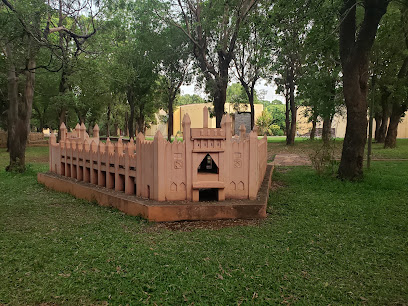
ZOO NATIONAL DU MALI
Discover Mali's wildlife at ZOO NATIONAL DU MALI in Bamako, a perfect family escape with diverse animals and conservation programs.
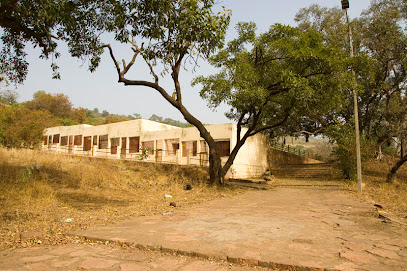
National Museum
Discover Mali's vibrant history and culture at the National Museum in Bamako, showcasing art, artifacts, and traditions.
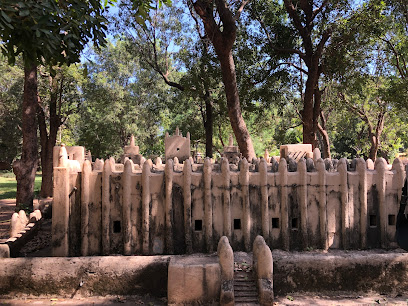
Yacouba Guindo Mosque
Discover the Yacouba Guindo Mosque in Bamako: a serene symbol of Islamic architecture and Malian cultural heritage.
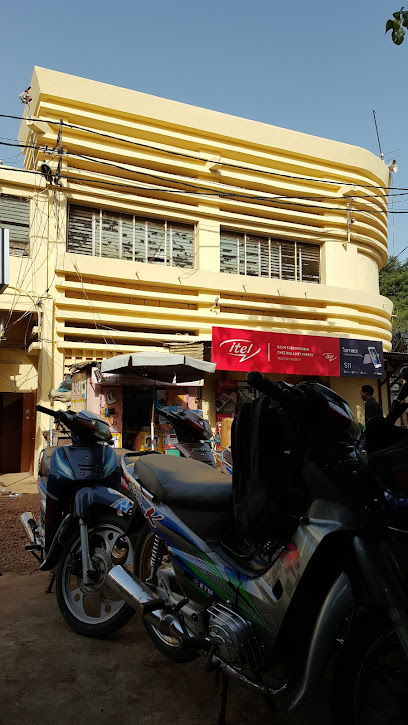
Djingareyber Mosque
Explore the historic Djingareyber Mosque in Timbuktu, a UNESCO World Heritage Site and symbol of Malian culture.
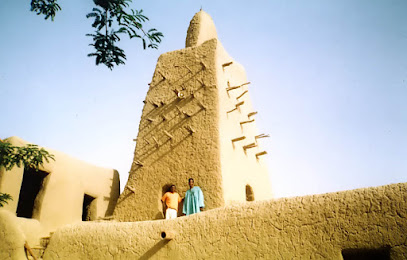
Ngolonina Artisan Market
Discover the vibrant Ngolonina Artisan Market in Bamako: a cultural hub offering handcrafted treasures, local flavors, and a true taste of Mali.
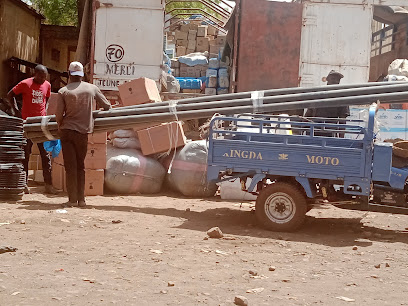
Stonehenge Mali / Gao
Discover Mali's ancient past at Stonehenge Mali in Gao, an archaeological site echoing prehistoric ceremonies and astronomical observations.
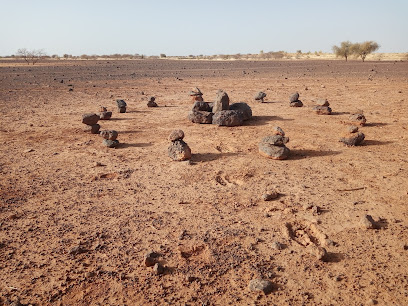
La Dune Rose
Discover the mesmerizing beauty and cultural significance of La Dune Rose, a natural wonder in Koïma, Mali.
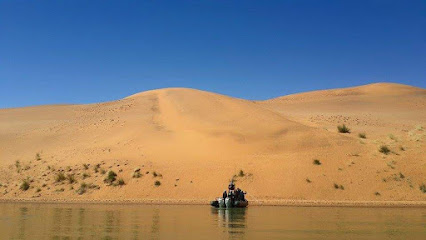
Barrage de Gouka, Mali
Discover the serene beauty and cultural richness of Barrage de Gouka, a must-see gem in Mali’s captivating landscape.
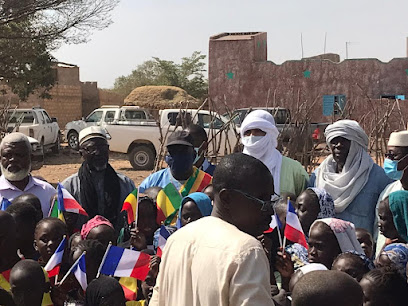
Ancien GARBAL de gao
Uncover Gao's ancient roots at Ancien GARBAL, where archaeological remains whisper stories of empires and royal grandeur.

Unmissable attractions to see
Mali National Park.
Experience the rich biodiversity and serene landscapes of Mali National Park, a must-visit destination near Bamako for nature lovers and adventurers.
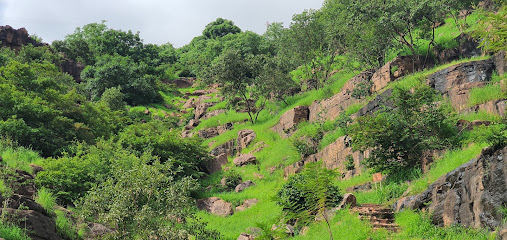
ZOO NATIONAL DU MALI
Discover the vibrant wildlife and conservation efforts at Zoo National du Mali in Bamako, a must-visit for families and nature lovers alike.
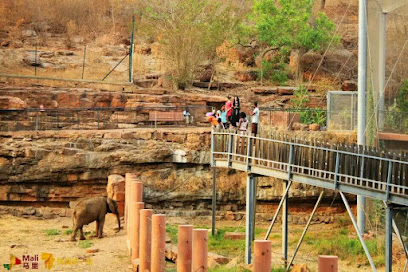
National Museum
Explore the National Museum of Bamako, a hub of Mali's rich cultural heritage, showcasing art and artifacts that tell the story of its diverse history.
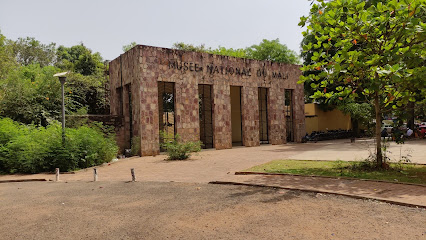
Museum of the Sahel
Discover the rich heritage of the Sahel at the Museum of the Sahel in Gao, a cultural gem showcasing the region's art and history.
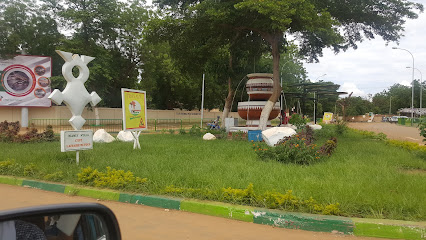
Stonehenge Mali / Gao
Explore the ancient mysteries of Stonehenge Mali in Gao, a unique archaeological site that reveals the rich history of Mali's past.
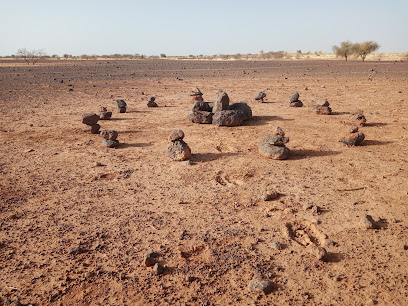
Tomb of Askia, Gao, Mali
Explore the Tomb of Askia, a UNESCO World Heritage Site in Gao, Mali, showcasing the grandeur of the Songhai Empire's architectural legacy.
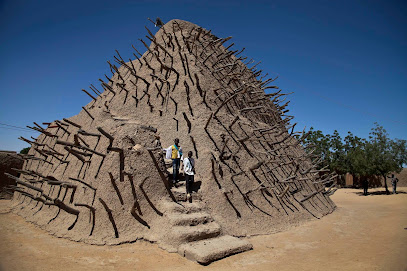
TAGANNA Plage
Experience the tranquil beauty of TAGANNA Plage, a peaceful park in Gao, Mali, ideal for relaxation and nature lovers.

Aza Tondo
Discover the breathtaking beauty of Aza Tondo National Park in Gorom Gorom, Mali, a sanctuary for wildlife and a perfect escape for nature lovers.

Zone 51
Explore the enchanting Zone 51 in Gaina, Mali, a vibrant tourist attraction showcasing local culture, art, and stunning natural landscapes.
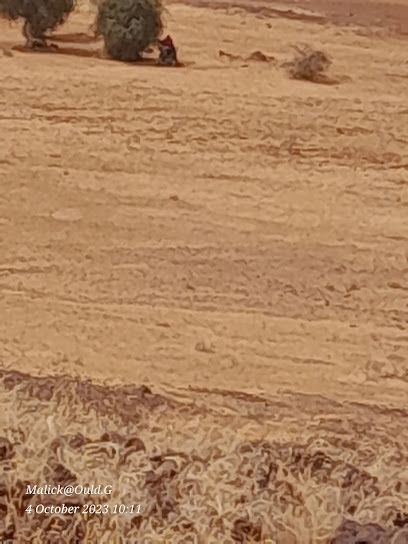
Ancien GARBAL de gao
Explore the ancient wonders of Ancien GARBAL de Gao and immerse yourself in the rich heritage of Mali's historical landscapes.

Essential places to dine
Restaurant Koundji Do A La Belle
Discover authentic Malian cuisine at Restaurant Koundji Do A La Belle in Gao - a delightful culinary experience waiting for you.
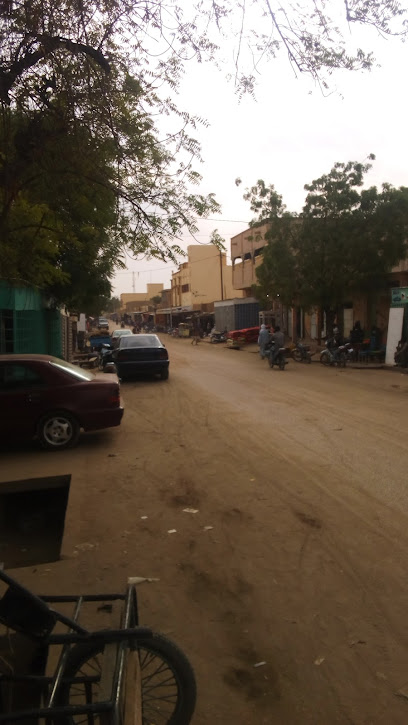
Bélah Rotisserie
Experience authentic Malian cuisine at Bélah Rotisserie - a culinary haven in Gao offering delicious rotisserie dishes at affordable prices.
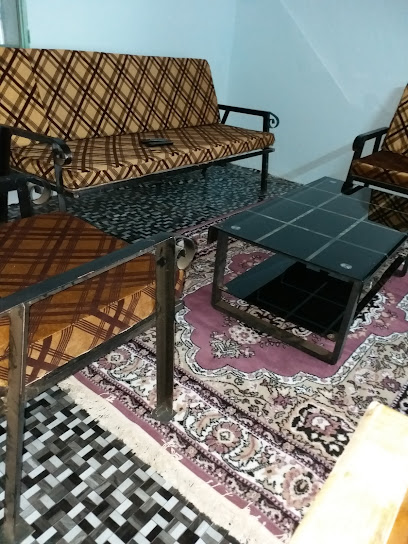
Bon Sejour
Experience authentic Malian flavors at Bon Sejour, a charming restaurant in Gao where culinary traditions come alive.
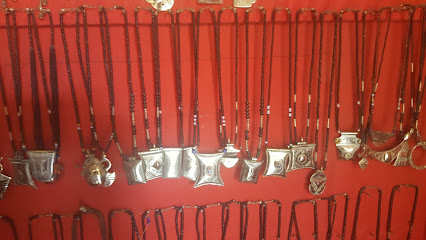
Boulangerie Pâtisserie et Resto Haidara
Discover authentic Malian flavors fused with French pastry traditions at Boulangerie Pâtisserie et Resto Haidara in Gao.
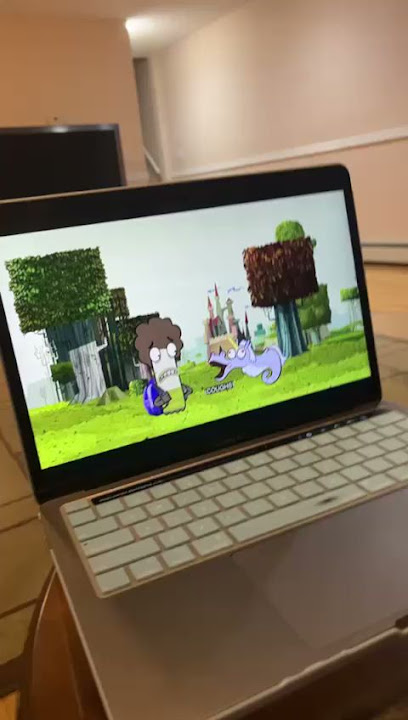
Restaurant Lahidou
Experience the vibrant flavors of Mali at Restaurant Lahidou in Bamako - where traditional cuisine meets modern dining.
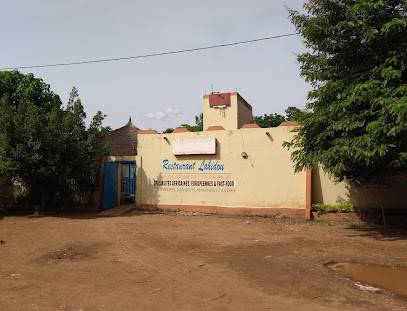
Rotisserie La Paix, GAO
Experience authentic Malian flavors at Rotisserie La Paix in Gao - a culinary delight amidst vibrant culture.
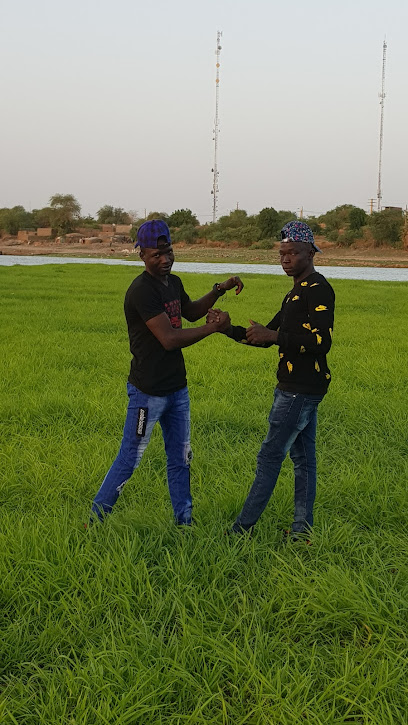
La Source Du Nord
Experience authentic Malian cuisine at La Source Du Nord, where local flavors meet warm hospitality in the heart of Gao.
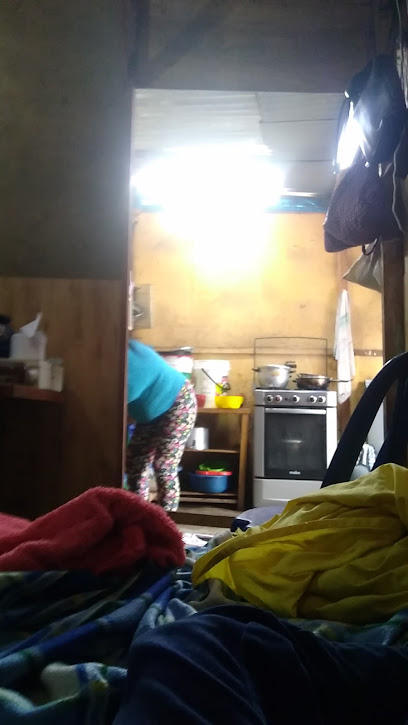
Le crépuscule
Discover the essence of Malian cuisine at Le crépuscule in Gao - where tradition meets flavor in every bite.

restaurant tchikaray
Discover the authentic flavors of Mali at Restaurant Tchikaray in Gao – a culinary gem offering traditional dishes in a welcoming setting.
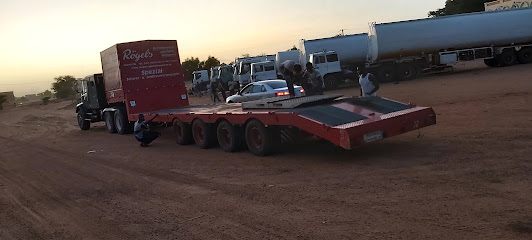
Restaurant La Case Mystérieuse
Experience authentic Malian cuisine at Restaurant La Case Mystérieuse in Gao - where tradition meets taste.
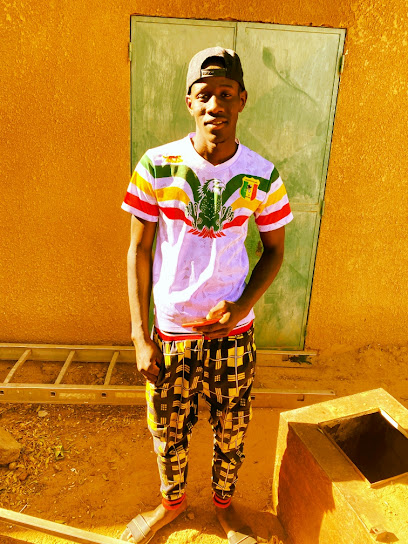
Restaurant Togolais chez Koffi
Experience authentic Togolese cuisine at Restaurant Togolais chez Koffi in Gao - where every dish tells a story.

alou ka so
Experience authentic Malian cuisine at Alou Ka So, a beloved restaurant in Bamako known for its rich flavors and welcoming atmosphere.
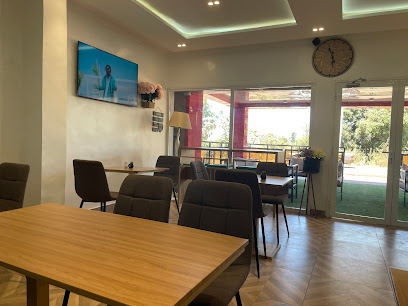
Restaurant Paradis Zeina
Experience authentic African flavors at Restaurant Paradis Zeina in Gao – where every dish tells a story.
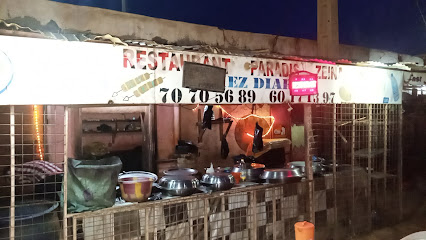
Dao Bakary Chez Galama
Discover the rich flavors of traditional Malian cuisine at Dao Bakary Chez Galama, where every dish tells a story.
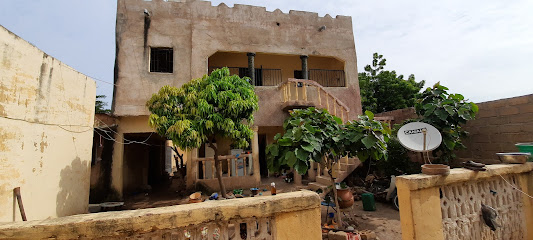
جوسي
Discover the authentic flavors of Mali at جوسي - where every dish tells a story and every visit is an experience.

Markets, malls and hidden boutiques
B&S Central Store
Experience the vibrant local culture at B&S Central Store, a treasure trove of unique goods and authentic Malian products in Gao.
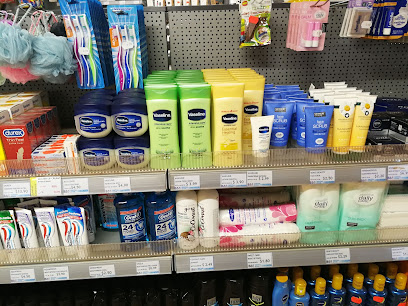
Boutique Yattara Allah Akbar
Experience the eclectic charm of Boutique Yattara Allah Akbar, a premier shopping destination in Gao, Mali, showcasing local culture and unique crafts.
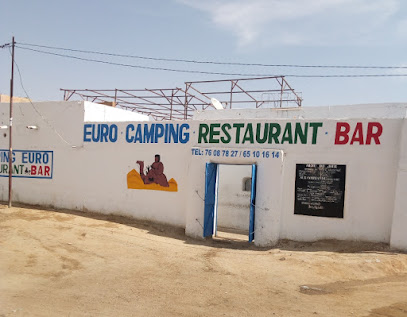
BANBAT PX SHOP
Experience the vibrant culture of Gao at BANBAT PX SHOP, your go-to destination for unique local goods and authentic shopping.
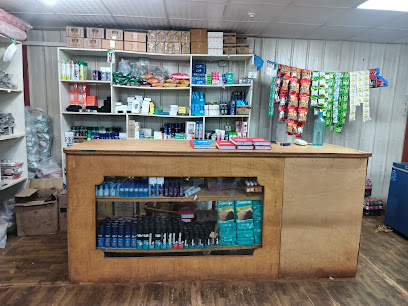
Arc En Ciel Boutique Gao
Discover unique fashion and artisanal styles at Arc En Ciel Boutique, a vibrant clothing store in the heart of Gao.
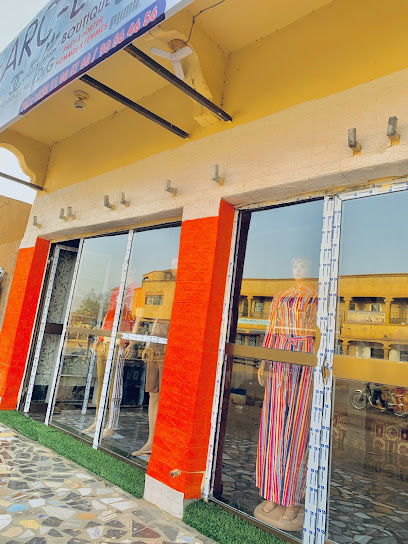
Gift shop
Explore Gao's vibrant culture at this unique gift shop, offering handcrafted treasures and authentic Malian artistry for every traveler.
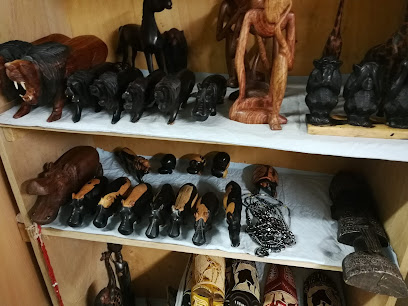
Maison des Arts
Discover unique handmade crafts and immerse yourself in the artistic spirit of Gao at Maison des Arts, a gem for tourists seeking authentic souvenirs.

Artisan Gift shop
Explore the Artisan Gift Shop in Gao for unique handcrafted souvenirs that capture the essence of local culture and artistry.
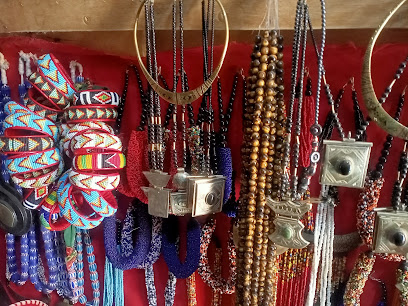
Totoka
Experience the vibrant shopping scene at Totoka in Gao, where local culture meets contemporary retail in an unforgettable adventure.

Boutique de Vente de Téléphone et Accessoires Et Autres Appareils Electroniques
Explore the best in electronics at Boutique de Vente de Téléphone et Accessoires in Gao, featuring top mobile phones and essential accessories.
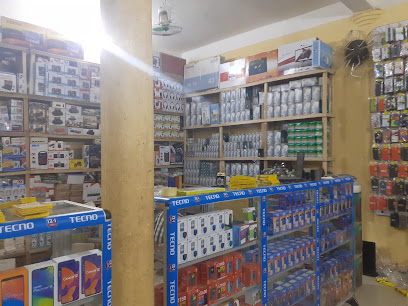
Lil G Le Jamaïcaine
Experience the vibrant culture and commerce at Lil G Le Jamaïcaine, a premier shopping destination in Gao, with unique shops and delightful eateries.
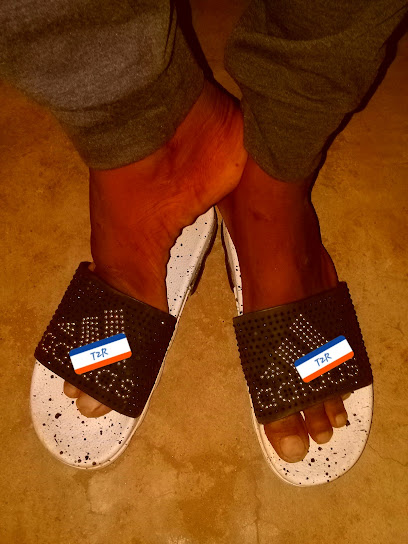
Boutique chaussures et boubou
Explore Gao's vibrant fashion scene at Boutique Chaussures et Boubou, where unique shoes and traditional boubous blend style with culture.

Yoobiizo
Explore the vibrant culture of Gao at Yoobiizo, a general store offering local goods, essentials, and authentic Malian souvenirs.

BOUTIQUE OUSMANE YATTARA 91346931
Explore Boutique Ousmane Yattara in Gao, a vibrant shopping mall offering authentic local goods and a taste of Mali's rich culture.
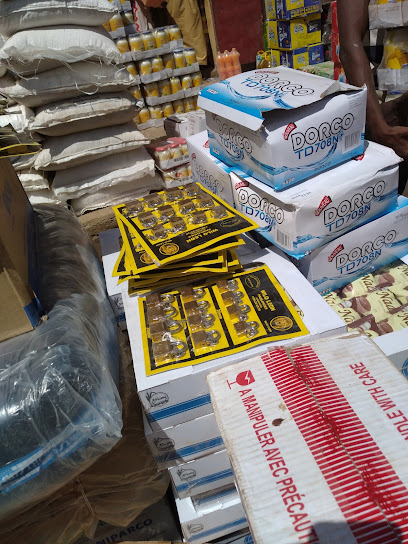
Boutique Kokorom
Explore Boutique Kokorom in Gao for the latest electronics, exceptional service, and a unique shopping experience in the heart of Mali.
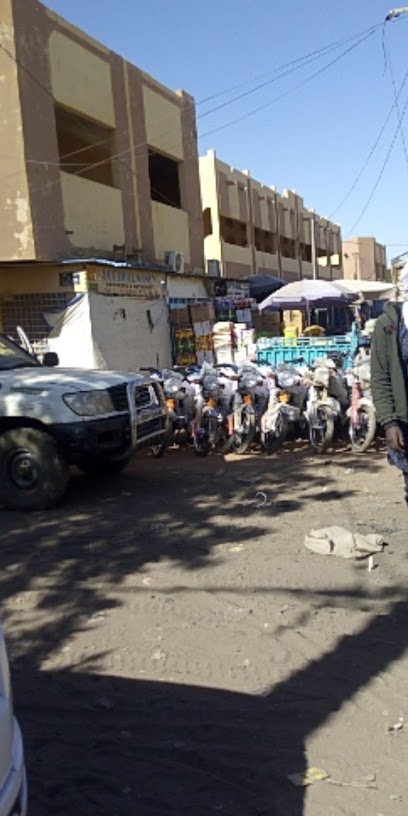
Boutique ml
Explore the Boutique Market in Gao - a vibrant tapestry of culture, crafts, and delicious local cuisine in the heart of Mali.

Essential bars & hidden hideouts
Restaurant Koundji Do A La Belle
Discover the authentic taste of Mali at Restaurant Koundji Do A La Belle, where traditional dishes and warm hospitality await every visitor.
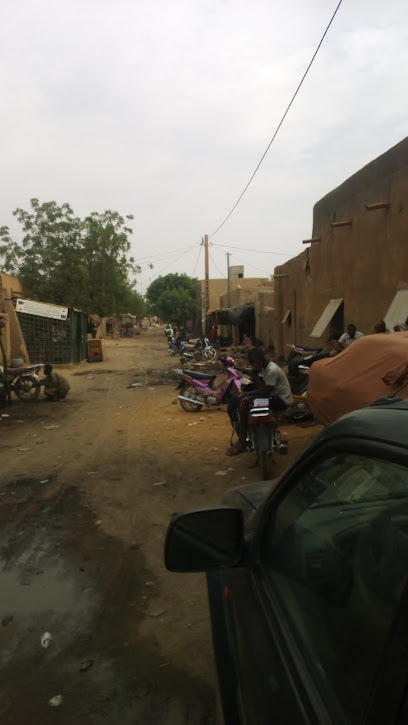
Bélah Rotisserie
Discover the authentic taste of Mali at Bélah Rotisserie in Gao, where every bite tells a story of local tradition and culinary excellence.
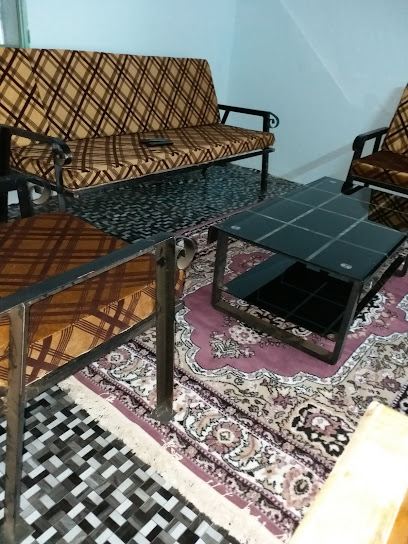
Euro Camping Restaurant Bar
Discover the lively charm of Euro Camping Restaurant Bar in Gao, where local flavors meet refreshing drinks in a vibrant atmosphere.

Bon Sejour
Savor the authentic flavors of Mali at Bon Sejour, a cherished restaurant in Gao offering a delightful culinary journey.
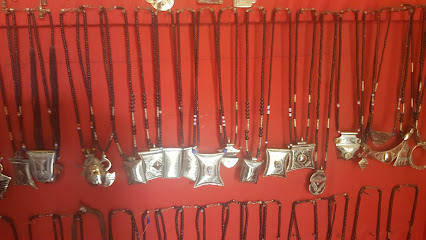
Rotisserie La Paix, GAO
Experience the authentic taste of Africa at Rotisserie La Paix in Gao, where every dish tells a story of rich culinary heritage.
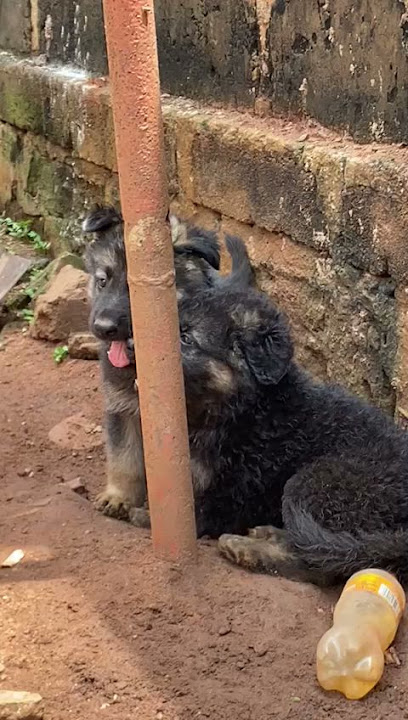
La Source Du Nord
Experience the authentic taste of Mali at La Source Du Nord, a must-visit restaurant in Gao for food enthusiasts and cultural explorers.
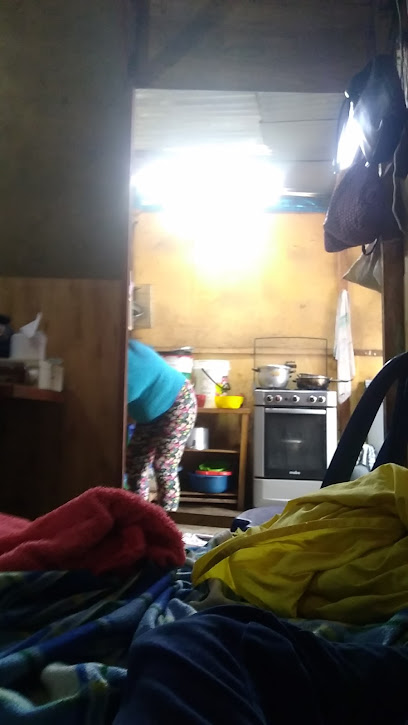
LKA Officers' Mess
LKA Officers' Mess: Experience local culture and vibrant nightlife at Gao's charming bar, perfect for unwinding after a day of exploration.
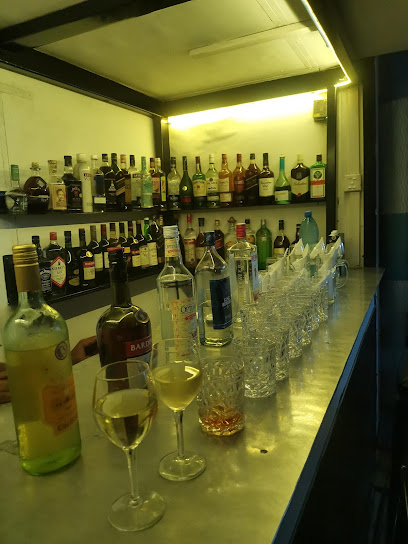
Le crépuscule
Experience the flavors of Mali at Le crépuscule, a top restaurant in Gao offering a fusion of traditional and contemporary dishes in a cozy setting.

restaurant tchikaray
Savor the authentic flavors of Mali at Restaurant Tchikaray, a delightful dining experience in the heart of Gao.
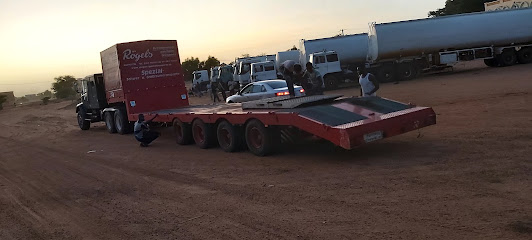
Restaurant Togolais chez Koffi
Discover the taste of Togolese cuisine at Restaurant Togolais chez Koffi in Gao, where authentic flavors meet vibrant atmosphere.

EURO Camping, Restaurant Bar
Experience the unique fusion of local cuisine and shopping at EURO Camping, Restaurant Bar in Gao, a must-visit destination for tourists.
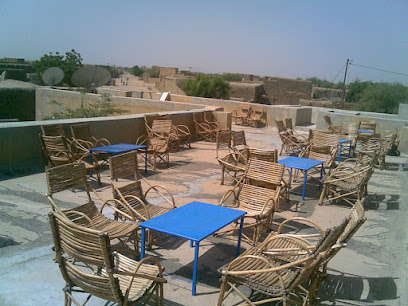
Restaurant Paradis Zeina
Savor the rich flavors of Mali at Restaurant Paradis Zeina, where authentic African cuisine meets a welcoming atmosphere in Gao.
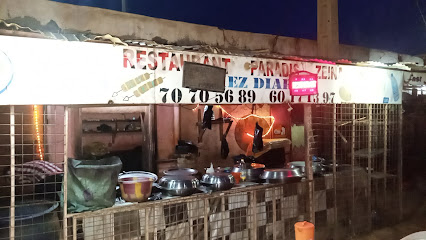
Restaurant Alher
Savor the flavors of Gao at Restaurant Alher, where authentic local cuisine meets a warm, inviting atmosphere perfect for every dining occasion.
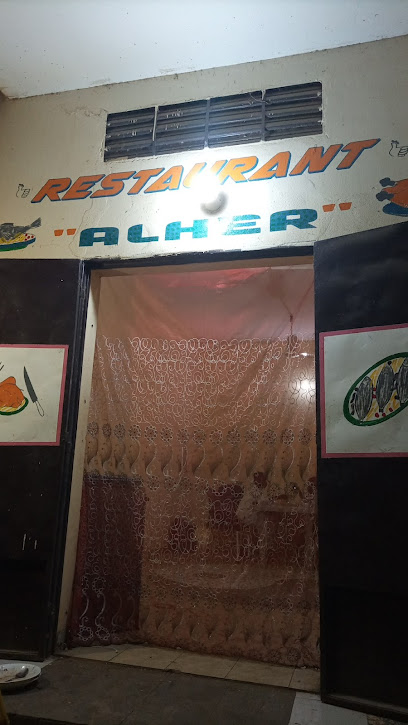
Fast food des dix
Discover the vibrant flavors of Gao at Fast Food des Dix, your go-to spot for delicious meals and quick bites in Mali.

Local Phrases about Gao
-
- HelloSannu
[sah-nu] - GoodbyeSai an jima
[sahy ahn jee-mah] - YesEh
[eh] - NoA'a
[ah-ah] - Please/You're welcomeKar ka gode
[kar kah goh-deh] - Thank youNa gode
[nah goh-deh] - Excuse me/SorryYanzu
[yan-zoo] - How are you?Yaya lafiya?
[yah-yah lah-fee-yah] - Fine. And you?Lafiya. Kana lafiya?
[lah-fee-yah. kah-nah lah-fee-yah] - Do you speak English?Kuna jin Turanci?
[koo-nah jeen too-rahn-chee] - I don't understandBan fahimci ba
[bahn fah-heem-chee bah]
- HelloSannu
-
- I'd like to see the menu, pleaseZan iya duba menu, don Allah
[zahn ee-yah doo-bah meh-noo, dohn ah-lah] - I don't eat meatBan san ciya ba
[bahn sahn chee-yah bah] - Cheers!Masu alkawari!
[mah-soo ahl-kah-wah-ree] - I would like to pay, pleaseZan bada kudi, don Allah
[zahn bah-dah koo-dee, dohn ah-lah]
- I'd like to see the menu, pleaseZan iya duba menu, don Allah
-
- Help!Taimako!
[tai-mah-koh] - Go away!Jiya!
[jee-yah] - Call the Police!Tuntube masu zanga-zanga!
[toon-too-beh mah-soo zahn-gah zahn-gah] - Call a doctor!Tuntube likita!
[toon-too-beh lee-kee-tah] - I'm lostNa aji
[nah ah-jee] - I'm illNa yi lafiya
[nah yee lah-fee-yah]
- Help!Taimako!
-
- I'd like to buy...Zan samu...
[zahn sah-moo] - I'm just lookingIna so na duba
[ee-nah soh nah doo-bah] - How much is it?An kira shi a lokacin da?
[ahn kee-rah shee ah loh-kah-cheen dah] - That's too expensiveWannan ya fi karfin
[wahn-nahn yah fee kahr-feen] - Can you lower the price?Zaka kawo yin farewa?
[zah-kah kah-woh yeenn fah-reh-wah]
- I'd like to buy...Zan samu...
-
- What time is it?Wannan lokaci yanzu ne?
[wahn-nahn loh-kah-chee yan-zoo neh] - It's one o'clockShida ne
[shee-dah neh] - Half past (10)Sama da
[sah-mah dah] - MorningSafe
[sah-feh] - AfternoonYamma
[yahm-mah] - EveningYamma
[yahm-mah] - YesterdayJibi
[jee-bee] - TodayYau
[yah-oo] - TomorrowGobe
[goh-beh] - 1Daya
[dah-yah] - 2Bi
[bee] - 3Uku
[oo-koo] - 4Huɗu
[hoo-doo] - 5Biɗa
[bee-dah] - 6Shida
[shee-dah] - 7Bakwai
[bah-kwai] - 8Takwas
[tah-kwahs] - 9Tara
[tah-rah] - 10Goma
[goh-mah]
- What time is it?Wannan lokaci yanzu ne?
-
- Where's a/the...?Ina...
[ee-nah] - What's the address?Yaya lamba?
[yah-yah lah-mbah] - Can you show me (on the map)?Zaka nuna min?
[zah-kah noo-nah meen] - When's the next (bus)?Yaya ne mahaifiyar nan za zo?
[yah-yah neh mah-hai-fee-yahr nahn zah zoh] - A ticket (to ....)Katin kudin
[kah-teen koo-deen]
- Where's a/the...?Ina...
History of Gao
-
Gao, one of the oldest trading centers in West Africa, was founded in the 7th century. Located along the Niger River, its strategic position allowed it to become a crucial hub for trade, connecting the Saharan trade routes with those of the Sudan region. Initially inhabited by the Songhai people, Gao quickly grew in prominence due to its advantageous location.
-
In the 15th century, Gao became the capital of the Songhai Empire under the rule of Sunni Ali Ber. His reign marked the beginning of the empire's expansion, transforming Gao into a flourishing center of commerce, education, and culture. The city prospered due to its control over trans-Saharan trade routes, dealing in gold, salt, and other valuable commodities.
-
Following Sunni Ali Ber, Askia Muhammad I, also known as Askia the Great, further elevated Gao's status during his rule from 1493 to 1528. He expanded the empire's territories and established a centralized administration. Askia Muhammad was a devout Muslim and promoted Islamic scholarship, turning Gao into a renowned center of learning, attracting scholars and students from across the Islamic world.
-
In 1591, the Moroccan army invaded the Songhai Empire, leading to the Battle of Tondibi. Despite their resistance, the Songhai forces were defeated, leading to the decline of Gao and the disintegration of the Songhai Empire. The Moroccan occupation marked the end of Gao's golden age and the beginning of a period of decline and instability.
-
During the late 19th and early 20th centuries, Gao came under French colonial rule as part of French Sudan. The imposition of colonial administration brought significant changes to the social and economic structures of the region. Gao remained under French control until Mali gained independence in 1960. Post-independence, Gao continued to play a vital role in Mali's cultural and historical landscape.
-
Today, Gao is a vibrant city that reflects its rich historical heritage. Visitors can explore historical sites such as the Tomb of Askia, a UNESCO World Heritage site, and the remnants of ancient settlements. The city remains a testament to its storied past, offering a glimpse into the grandeur of the Songhai Empire and its enduring legacy in West African history.
Gao Essentials
-
Gao is located in eastern Mali, and the best way to get there is by flying into Bamako, the capital of Mali. From Bamako, you can take a domestic flight to Gao. Alternatively, you can travel by road, but do note that this can be a long and challenging journey due to the distance and road conditions. There are also bus services that connect Bamako to Gao, but these can be time-consuming and less comfortable.
-
Within Gao, transportation options include taxis and motorbikes (locally known as 'moto-taxis'). Taxis are a convenient way to get around the city, and you can negotiate the fare before starting your journey. Moto-taxis are a cheaper option but may not be as safe. There are also shared taxis and minibuses for longer distances to neighboring towns and villages.
-
The official currency in Mali is the West African CFA Franc (XOF). Credit cards are not widely accepted in Gao, so it is advisable to carry cash. ATMs are available but may not always be reliable, so it is wise to withdraw sufficient cash in Bamako before traveling to Gao. Carry small denominations for easier transactions.
-
Gao has areas with higher crime rates, particularly for crimes targeting tourists. It is advisable to avoid walking alone at night and to stay in well-lit and populated areas. Be cautious with your belongings and avoid displaying valuables openly. Areas such as the riverbanks and some outskirts of the city can be less safe, so it is best to avoid them, especially after dark.
-
In case of emergency, dial 17 for police assistance and 15 for medical emergencies. Gao has a local police station and a hospital for medical emergencies. It is highly recommended to have travel insurance that covers medical emergencies and evacuation. For minor health issues, there are pharmacies where you can purchase over-the-counter medications.
-
Fashion: Do dress modestly, especially when visiting religious sites. Avoid wearing revealing clothing. Religion: Do respect local customs and traditions. Show respect when visiting mosques and other religious places. Public Transport: Do be respectful and give up your seat to elderly passengers. Don't eat or drink on public transport. Greetings: Do greet people with a handshake and say 'Bonjour' (Hello). A slight bow of the head is also a sign of respect. Eating & Drinking: Do try local delicacies and accept food offerings graciously. Don't refuse hospitality, as it is considered impolite.
-
To experience Gao like a local, visit the local markets, especially the grand marché (big market) where you can buy traditional goods, fresh produce, and local crafts. Engage with locals, as they are often friendly and willing to share stories about the city's history and culture. Don't miss visiting the Tomb of Askia, a UNESCO World Heritage Site, and take a stroll along the Niger River for a relaxing experience. Try the local cuisine, including dishes like 'tô' and 'maafe'.
Nearby Cities to Gao
-
Things To Do in Ouahigouya
-
Things To Do in Ziniaré
-
Things To Do in Ouagadougou
-
Things To Do in Koudougou
-
Things To Do in Dédougou
-
Things To Do in Bobo-Dioulasso
-
Things To Do in Wa
-
Things To Do in Tamale
-
Things To Do in Bamako
-
Things To Do in Atakpamé
-
Things To Do in Sunyani
-
Things To Do in Kaduna
-
Things To Do in Kpalimé
-
Things To Do in Kano
-
Things To Do in Notse








